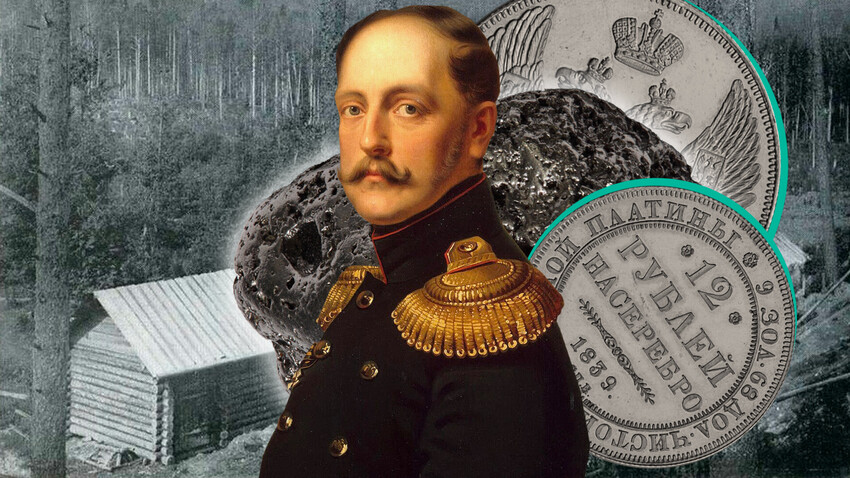
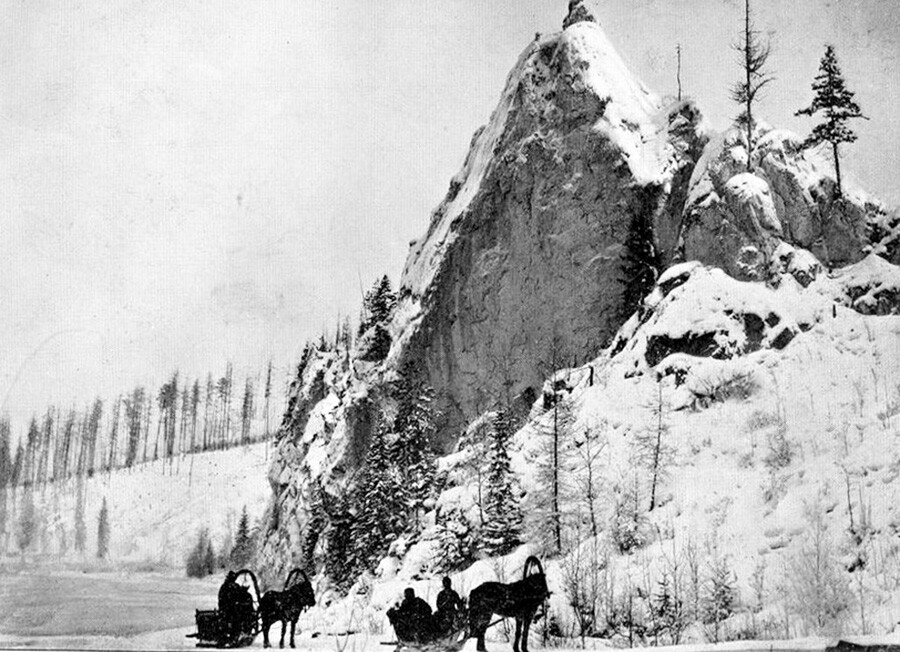
The first platinum deposit was found in 1819 not far from Yekaterinburg; five years later – another one in the vicinity of the Barancha River, where an ironworks was located. Finally, in 1825, platinum placers were found in the region of Nizhny Tagil. This was a chance find: from time to time, the workers who toiled in the mines found strange black grains. They weighed enough to be used as buckshot: so, these men were actually shooting platinum at the local animals! But, as soon as the qualities of this new metal were revealed, local engineers clutched their heads – these hunts had been priceless! The discovered platinum deposits were so rich that Russia suddenly became its leading producer: 1.5 tons in 1828 alone! Such an amount couldn’t have been mined in South America even in a century!
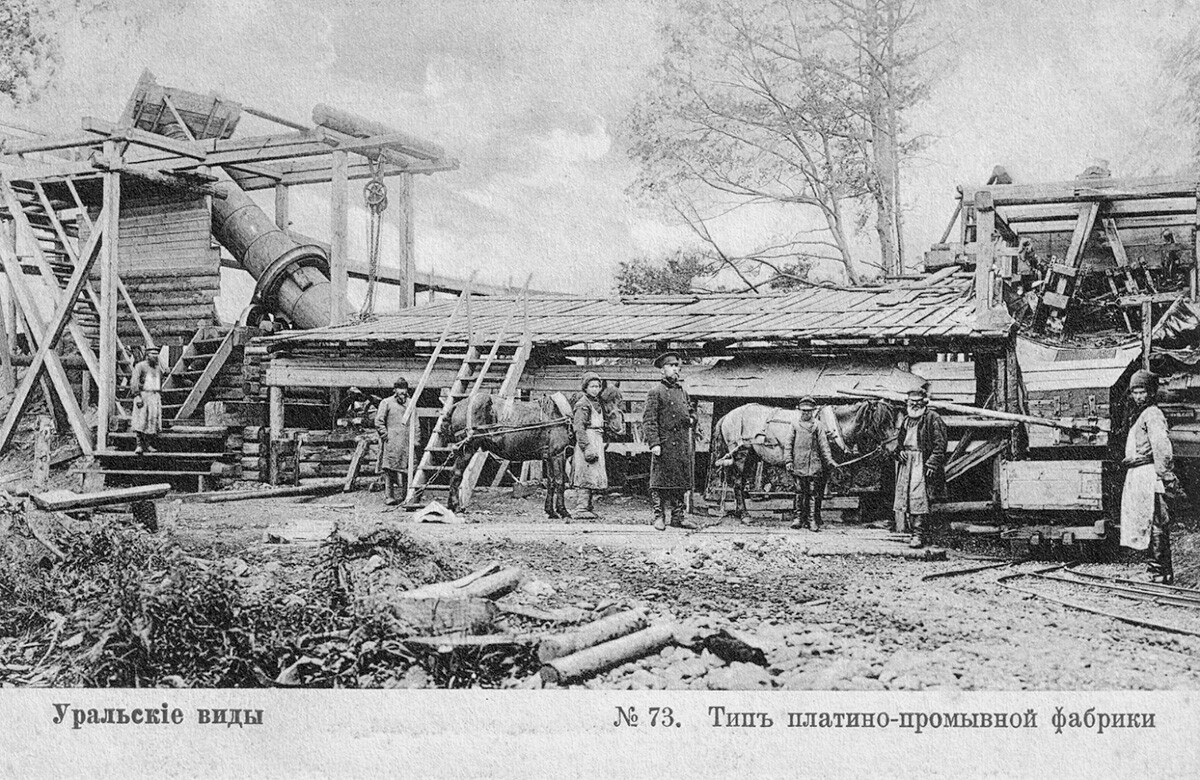
Platinum Mining Wash Plant, Urals
Public domainIt would seem they should have simply kept mining the new metal and live happily ever after. But, there’s a problem: no one knew what to do with it and the experience of other countries didn’t help at all. They dealt with platinum simply, using it for technical purposes; for example, to build various chemical equipment and… to produce counterfeits – this metal alloyed with gold with ease.
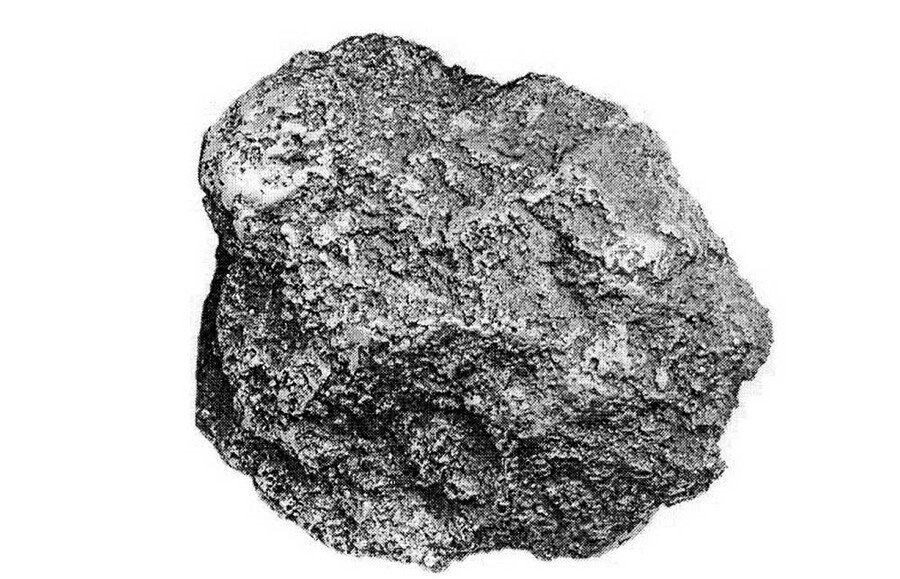
From the Ural factories, items made of platinum were regularly sent to the court in St. Petersburg – an ink pot, a ring, a tabernacle – and also nuggets that were discovered. One of them, weighing more than four kilograms, was presented to Emperor Nicholas I by Georg Cancrin, the Minister of Finance. The former appreciated the present – today, the ‘Demidovsky’ nugget is stored in the Diamond Fund. Perhaps, it was this that forced people to treat platinum seriously: from 1826 on, factories were taxed for mining platinum and whatever was left of the mined metal was sent to the Mint.
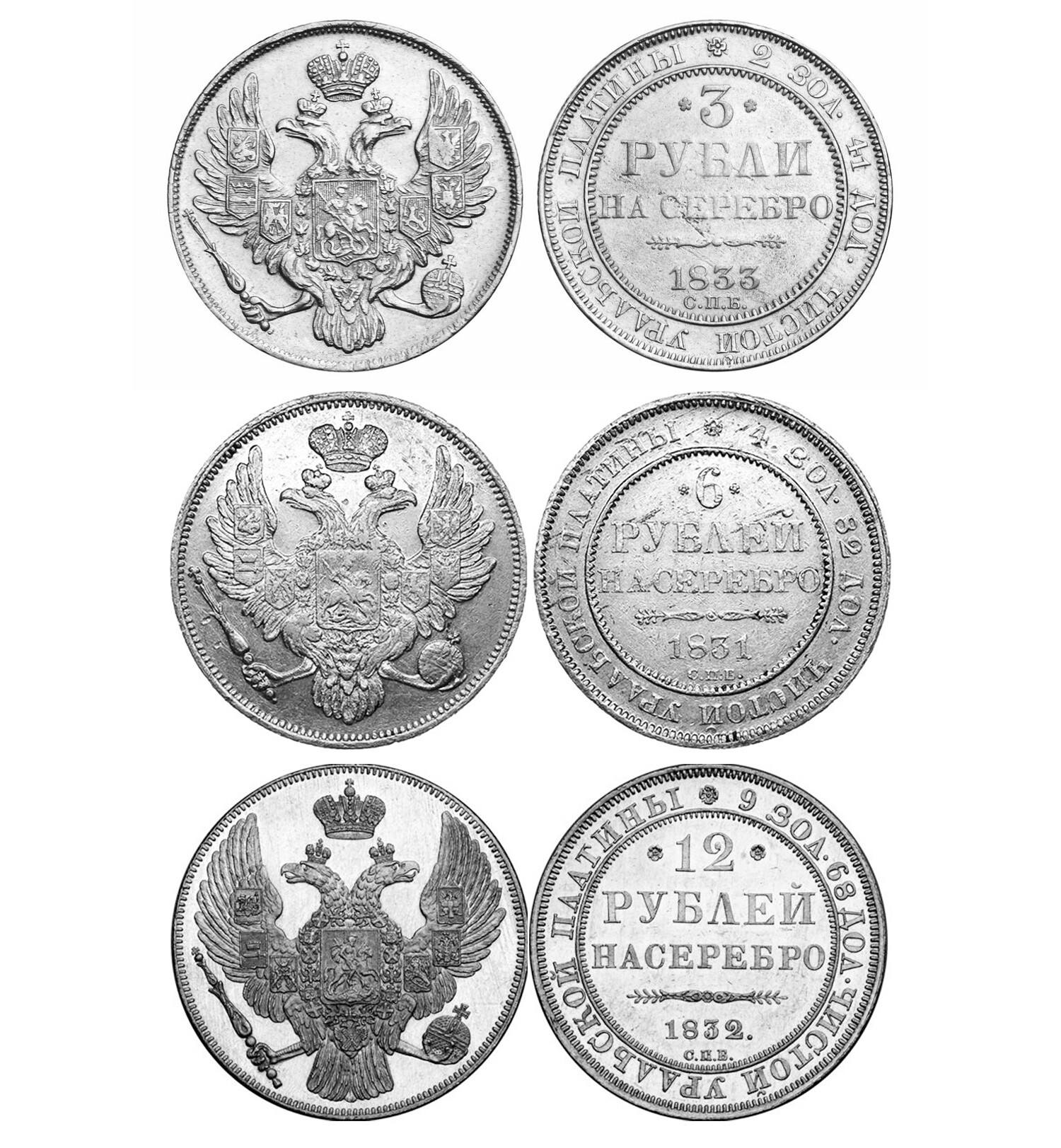
Finally, Minister Cancrin figured out how platinum could be useful – he proposed minting coins from it. That could improve the treasury’s standing, shaken after the war of 1812. He shared his idea with scientist Alexander von Humboldt, who warned against such a step. The fluctuations of the price of platinum and its simplistic look caused concern. But, after all, why not risk it? From 1828, Russia minted platinum coins with denominations of three, six and 12 rubles and became the first country where money made of this metal was circulating. Almost 15 tons of platinum were used to produce them – a half of 32,000 kilograms of platinum mined. But then, everything ended.
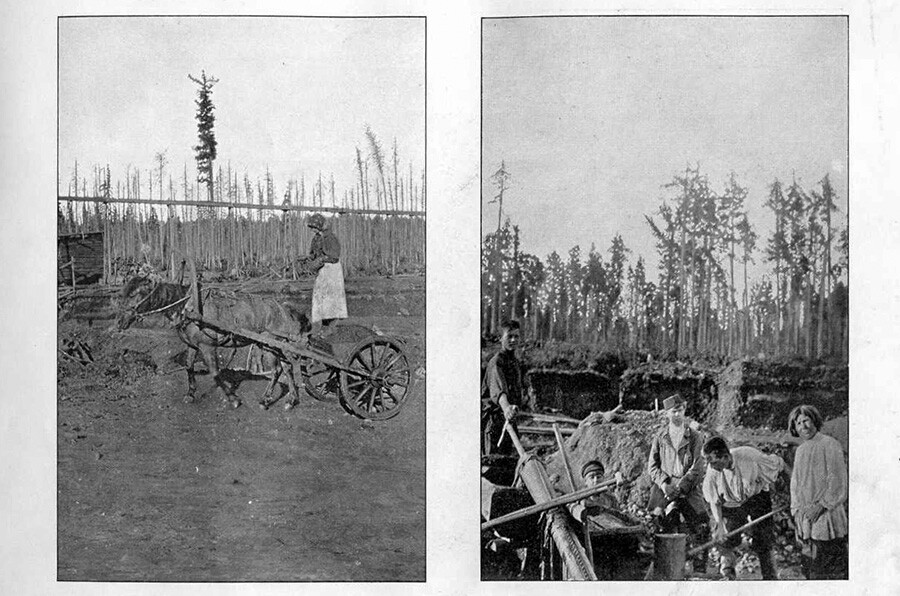
What Alexander von Gumboldt warned about, happened. The price of metal in “luxury coins” was already five times higher than in silver coins. For example, a platinum 3-ruble coin cost 12 times more than a silver coin with the same denomination. Rising prices for platinum in Europe made them increasingly “pointless”. The Mint was also wary of various counterfeits. In 1845, the minting of platinum coins was stopped; they were removed from circulation.
In 1867, the company ‘Johnson, Matthey and Co.’ bought out the entire Russian supply of platinum. As such, England, possessing not a single deposit of platinum, became the leader in this field for many years. Russia remained the only country in history where such “luxury coins” were circulating.
Dear readers,
Our website and social media accounts are under threat of being restricted or banned, due to the current circumstances. So, to keep up with our latest content, simply do the following:
If using any of Russia Beyond's content, partly or in full, always provide an active hyperlink to the original material.
Subscribe
to our newsletter!
Get the week's best stories straight to your inbox